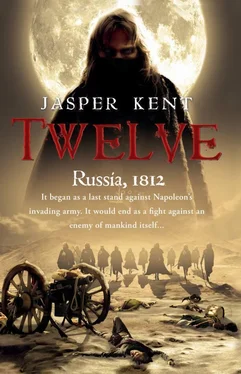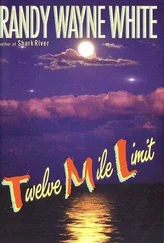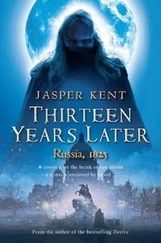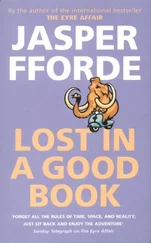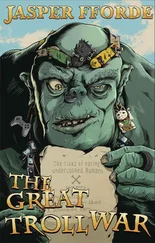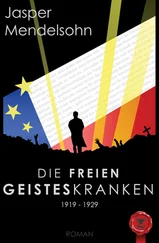
© 2008
Distances
A verst is a Russian unit of distance, slightly greater than a kilometre.
Dates
During the nineteenth century, Russians based their dates on the old Julian Calendar, which in 1812 was twelve days behind the Gregorian Calendar used in Western Europe. All dates in the text are given in the Russian form and so, for example, the Battle of Borodino is placed on 26 August, where Western history books have it on 7 September.

Prologue – A Russian Folk Tale
Some people place this story in the town of Atkarsk, others in Volgsk, but in most versions it's Uryupin and so that is where we will keep it. All versions agree that the events occurred sometime in the early years of the reign of the great Tsar Pyetr and all agree that the town in question was infested by a plague of rats.
Rats always came to Uryupin in the summer, taking grain and bringing disease, but the people of the town, like those of any town, had learned to survive the summer months, comfortable in the knowledge that the cold of winter would kill off most of the verminous creatures – not completely wipe them out perhaps, but at least reduce their numbers so that the next summer would be no worse than the last.
But although the winters had of late been as cold as one might expect in Uryupin, they had had scant effect on the size of the rat population. The number emerging in spring seemed little fewer than there had been the previous autumn, and the number each autumn was three times what it had been in spring. By the third summer the rats were everywhere and the people of the town came up with a desperate solution. They would abandon Uryupin; leave it for the rats to feed in until there was nothing left for them to feed on. Then the rats would starve and the people, after a year or two, could return.
Before the plan could be carried out, late in July of that year, a merchant arrived in the town. He was not Russian but, as far as the people of Uryupin could tell, a European. He told the people that he had heard of their problem and that he could help. He had arrived with a simple wagon, pulled by a tired mule and covered with a great cloth, so that no one could see what was inside.
The merchant said that what he had in his wagon would kill every rat in the town and that if this did not prove to be the case he would not take a single copeck in payment. The leaders of the town asked what it was that the merchant had inside his wagon, but he would not show them until they agreed his price. Few in Uryupin had much appetite for the plan of abandoning the town and many had openly declared it to be madness, so the merchant needed to do little persuading before his alternative was accepted.
He dramatically (some versions of the story say ostentatiously) pulled off the cloth covering his wagon to reveal a cage; a cage containing monkeys – about a dozen of them. They had been placid in the darkness under the cloth, but as soon as the light hit them they began to scream and tear at the bars that confined them, reaching through as if to attack the onlookers who had crowded round.
The monkeys were not big, perhaps up to a man's knee, although their hunched posture made them appear smaller than if they had been standing fully upright. Their bodies, but for the palms of their hands and the soles of their feet, were covered in black fur, topped with a white ruff around the neck. Their heads were the heads of old men: fleshy, wrinkled skin, without a single hair. Some said they were more vultures than monkeys.
The merchant opened the cage and the monkeys ran out into the town. On the ground they moved on all fours with most of their weight on their hind legs, their knuckles barely grazing the earth, but soon they were using both arms and legs to climb up the sides of barns or down into cellars. Within minutes they had disappeared.
The people of the town waited. The merchant had warned them to keep their dogs and cats safe at home, since the monkeys were none too discriminating about their prey. Most kept their children at home too, reasoning that if one of these creatures could kill a full-grown dog, then why not a baby or an infant?
With no children playing and with the adults praying for success, the town might have been quiet, but such quietness as they enjoyed was continually broken by the screeching of a monkey as it found another rat. The ecstatic scream as one leapt upon its victim could cut through the town at any time of day or night, emanating from a cellar or from a loft or from behind a wall. No one saw the merchant's pets at work, but all could hear that they were working.
And soon, within a week, the people did begin to notice that there were fewer rats. The tenth day was the last on which a rat was ever sighted, foraging amongst the bins of pig feed, oblivious to the fate of its brothers and sisters; the fate that it was soon to meet.
The town's leaders were thankful. They offered the merchant what he had asked and half as much again. But the merchant refused to take anything.
'The task is not yet complete,' he explained. 'My friends have not yet returned and will not return until there is nothing more for them to eat.'
Sure enough, though the people of Uryupin saw no more rats, they still heard the screaming of the monkeys at work, although now it seemed to come not from the cellars and the barns, but from the trees and the hedgerows. Rats are devious creatures, the people reasoned, and so no one was much surprised that the last survivors would find such unusual places to hide.
Mid-morning of the fourteenth day after the monkeys had been released, the first one returned and settled down in the merchant's caged wagon to sleep. By early evening, all had returned. The merchant locked the cage, threw the cloth back over it, took his payment and left.
And the townspeople basked in the silence. For two weeks the terrifying screeching of the feasting monkeys had penetrated every corner of Uryupin and the relief at their departure, though unspoken, was shared by all. In their minds the people were glad to have got rid of the rats. In their hearts they were overjoyed to be free of the screaming monkeys.
But as the days went by, the silence began to weigh on them. At first they had thought the quietness had been so noticeable only in contrast to the noise of the past two weeks, but soon people began to realize it was actually more silent than it had been before; before the merchant and his monkeys ever arrived in the town. They could cover it up with the noise of speech and of their daily lives, but beyond that, there was nothing. It was an absolute, total silence.
And, as is often the case in these stories, it was a young boy, of about ten, who first noticed. There was silence because there was no birdsong. After the merchant's creatures had done their work, there was not a single bird left alive anywhere in the town of Uryupin.
Nor did any ever return.
DMITRY FETYUKOVICH SAID HE KNEW SOME PEOPLE.
'What do you mean, "people"?' I asked. My voice sounded weary. Looking around the dimly lit room, I could see that we were all weary.
'People who can help. People who understand that there's more than one way to skin a cat. Or to kill a Frenchman.'
'You're saying that we can't do the job ourselves?' My question came from instinctive patriotism, but I knew a hundred answers without having to hear Dmitry's reply.
Читать дальше
